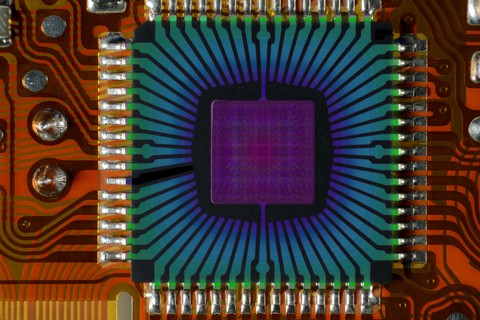Silicon Beach, Silicon Valley and basically many parts of California and universities have spearheaded advancements in computing. Here they describe one of the specific challenges to achieve one of these superstates and how they made progress in addressing:
The new advance comes from researchers led by John Martinis, a professor at the University of California, Santa Barbara, who last year joined Google to set up a quantum computing research lab (see “Google Launches Effort to Build Its Own Quantum Computer”). Martinis now holds a joint position between UCSB and Google, leading work on superconducting aluminum chips that operate at a fraction of a degree above absolute zero. Most of the work behind the new results, reported today in the journal Nature, took place before Martinis joined Google
Much quantum computing research focuses on trying to get systems of qubits to detect and fix errors. Martinis’s group has demonstrated a piece of one of the most promising schemes for doing this, an approach known as surface codes. The researchers programmed a chip with nine qubits so that they monitored one another for errors called “bit flips,” where environmental noise causes a 1 to flip to a 0 or vice versa. The qubits could not correct bit flips, but they could take action to ensure that they did not contaminate later steps of an operation.
What types of computing applications would we use with quantum computing. Better weather prediction, robotics or even advcancements in space travel and energy consumption? The possibilities are pretty incredible. For you future enthusiasts feel free to comment on where you think quantum will advance.
thanks to Tom Simonite for the great piece and the MIT Technology Review
